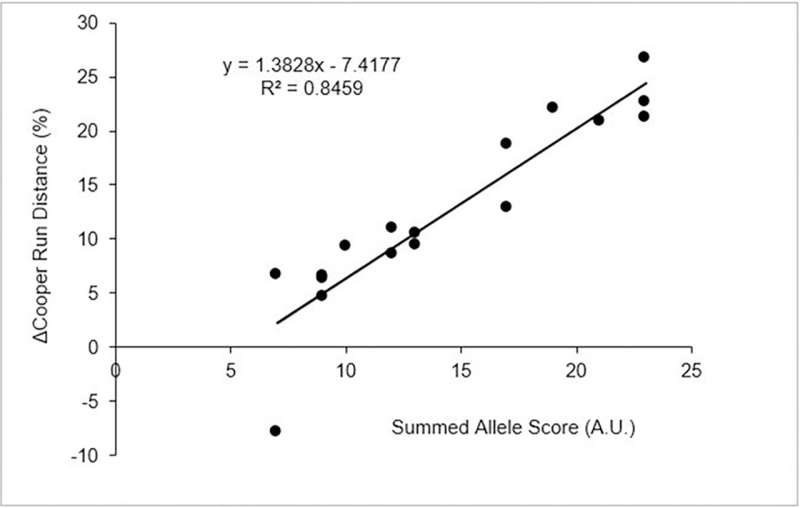This article has been reviewed according to Science X's editorial process and policies. Editors have highlighted the following attributes while ensuring the content's credibility:
fact-checked
peer-reviewed publication
trusted source
proofread
Beating a running personal best could come down to genetics, research reveals

Struggling to shave seconds off your Park Run personal best? Don't worry, scientists have revealed it could all be down to your genetics.
Researchers at the University of Essex discovered fewer than 31% of people have the unique makeup to make the most of training.
Dr. Henry Chung, from School of Sport, Rehabilitation and Exercise Sciences, found the top performers had a combination of 19 key gene variants—known as single nucleotide polymorphisms (SNPs)—linked to running performance.
Following just eight weeks of endurance training they improved by an average of 11.5% and those without the genetic coding showed little or no improvement even when exposed to the exact same training.
This is the first time, in combination, that all these key markers that spark success have been listed together and examined by scientists.
Dr. Chung said, "This study supports the fact that genetics play a major part in athletic performance and training responses."
"Whether you are an elite competitor or training for a fun run, your DNA can make a real difference on how much you can push your limits."
"However, it is not all bad news if you lack these—what really matters is going out, training and being active."
"After all it doesn't really matter what genes are hidden in your body if you are not living an active life and utilizing them."
"As they say 'hard work will always beat talent if talent refuses to work hard'."
As part of the study, Dr. Chung conducted laboratory and field-based tests, where both men and women aged 20–40 were tracked for two months.
He used the Cooper Test to measure performance—which the military use to analyze aerobic fitness.
Participants were asked to run as far as they could in 12 minutes by running on a marked track across the eight-week study.
Interestingly, there was a significant positive association the best performers and their gene profiles.
Out of the thousand genes analyzed, all top performers had the same variants linked to the "ACTN3" gene, which is associated with adaptability, speed and power, improved strength and reduces injury.
The research is published in the journal PLOS ONE.
More information: Henry C. Chung et al, Responsiveness to endurance training can be partly explained by the number of favorable single nucleotide polymorphisms an individual possesses, PLOS ONE (2023). DOI: 10.1371/journal.pone.0288996


















